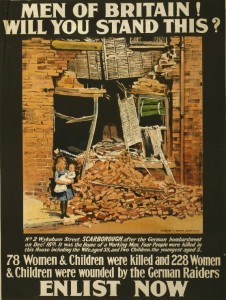 The Great War was not just about loss and victory; we understand it to be Britain’s watershed of change during the 20th Century. But how much was the war responsible for the changes which took place in the Britain? Joshua Allerton provides three short articles, which looks at the major areas which were affected during the early stages of the twentieth century, population, wealth and women’s rights.
The Great War was not just about loss and victory; we understand it to be Britain’s watershed of change during the 20th Century. But how much was the war responsible for the changes which took place in the Britain? Joshua Allerton provides three short articles, which looks at the major areas which were affected during the early stages of the twentieth century, population, wealth and women’s rights.
During the First World War, society in Britain changed. To some feminists, it was the start of the suffrage. To many, it was the murder of a whole generation. To others, it was the death of the gentry. These three short essays will analyse the ways that society in Britain was changed by the First World War; addressing population, wealth and women’s suffrage. It will consider the effects the war had, whilst at the same time, considering the effects had the war never happened.
The First World War changed Britain’s population in terms of its numbers. The first indication is in the reduced birth rate, “falling from 24.1 per thousand births in 1913 to 17.7 in 1918,” (Stevenson, 1984) a common theme during the late 19th Century, but not as harsh. The reasoning behind the intense drop was because of the absence of males within the society, either through serving their country on the battlefields of Europe or death. With no young dashing men for women to marry, or married men home, no sex could take place. No sex meant no babies.
However, whilst the birth rate decreased and people died, it can be argued that the First World War actually saved us from a more intense depopulation. Within the small space of 1901 – 1910, Britain lost 750,000 people to emigration with levels “reaching ever higher… in the years immediately before.” (Stevenson, 1984) Compare the figure to the “610,000 [that] had been suggested for the total number of deaths” (Stevenson, 1984) throughout the Great War, then it is fair to predict that even without considering an emigration inflation, the same amount of population loss would have happened over twice the period of the war and would have continued rising for the years after.
The war gave people a reason to come to Britain, either as “refugees from Europe” (Stevenson, 1984) or for the same reason the majority of Brits left: for work. Despite the industry failing to cope with the surge of people, the unemployment rate rocketing after the war, the 1920’s saw, “emigration [running] at an average rate of about 130,000 a year, less than half the pre-war level.” (Stevenson, 1984). By the 1930’s, Britain’s emigration problem had been solved, leaving them with a surplus of 650,000 immigrants (Stevenson, 1984) as they entered the decade. To add to the surplus, the post-war boom, which possibly happened due to winning the war, also increased the population.
As proven, if the war hadn’t occurred, the emigration rate would have continued to rise, depopulating Britain more intensively in the long run than the war would have done. In addition to that, the birth rate would have followed the trends set in the late 19th Century and contributed to the depopulation. Without the war, people wouldn’t have had a reason to return home or to immigrate to Britain and certainty without the war victory raising the country’s morale, the post-war baby boom wouldn’t have occurred. On these basis’, it is fair to say that the war changed society in terms of population in that present day and the years that followed.

